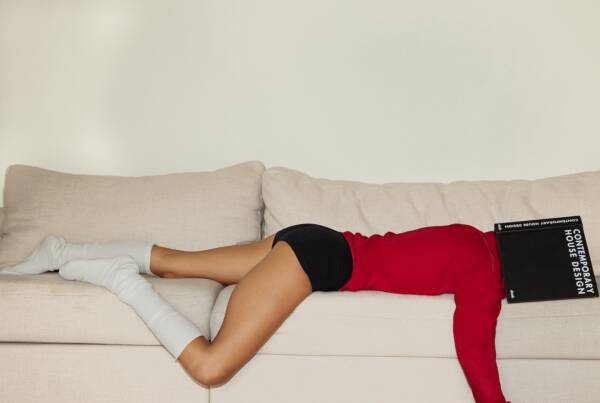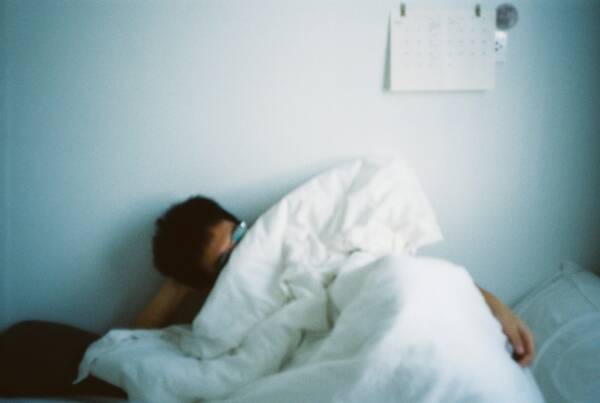Writing by Surbhi Rikhi // Photography by Makeda Sandford
I kept thinking about the sharp knife sitting in the top drawer in the kitchen. I tried doing things to distract myself but the thought was intrusive. Eventually I sat down and made a phone call. I called a friend– not a close friend, but someone I knew had recently been through depression. When he answered, I asked him whom he had seen for help and he told me about a program that was directed at medical professionals in particular. That was the next phone call I made, and believe me, it was NOT easy. I had put it off for a very long time, thinking that making that call was a sign of weakness. It took a lot of courage to call and say that I did not feel well… mentally. I was stressed beyond recognition and I was tired of battling it out alone. I was 20 years old and in my third year of medical school at the time. I couldn’t quite remember how long I had felt low but it was a long time. I had moved out of home at the age of 18 to study interstate, and being away from my family was one of the hardest things I have ever experienced. I never imagined that being homesick could feel so painful. My parents felt helpless and no matter how long they spent consoling me over the phone, I couldn’t find a way of coping.
For the first time in my life, I had to tell a stranger that I sometimes had thoughts of killing myself because it seemed easier than my shitty little life. I told them that I had self-harmed on and off for a few years but never with the intention of killing myself. I just wanted the physical pain to distract me from the much worse pain I felt otherwise. I told them about growing up in a dysfunctional family environment, dealing with difficulties of cultural identity, and of course the usual troubles of university life.
I went to see a psychiatrist and I began taking medication. I’ll be honest, I didn’t feel like I connected with the psychiatrist. She seemed indifferent. The medication did help though, and I continued taking it for one year. It didn’t “cure” me, but it helped make my lows less low. I didn’t become addicted to it, and I did realise that I needed it. I stopped attending therapy because I felt that I could manage on my own. A couple of years passed and I tried different ways of coping.
A few years later, I started my first job. I was in a good place at the time. I was excited about my job, and all the wonderful new opportunities. I also knew the amount of stress that was associated with my job. So I took initiative. I asked my GP to refer me to a psychologist so that I could develop some good coping strategies and get a better grasp of managing my mental health. It was a positive step. My appointment with the psychologist was across town. I had just finished a 12-hour night shift before driving another hour to attend the session. It was difficult to open up to yet another stranger. She listened intently and finally suggested that ongoing therapy would be a good idea, but perhaps I needed to look elsewhere, somewhere closer to home. I felt furious. Why had they bothered in the first place I thought? They knew where I lived, why hadn’t they suggested that I see someone in my own area? And why was it an issue if I was prepared to drive out to see them? In the end, I lost a lot of trust in the mental health system and decided not to go back. Things were made worse when my GP implied that I had gone against medical advice when the idea had been mine.
Again, several years passed and I went through relationship breakdowns, difficult jobs, parental discord, and various other hurdles that life throws our way. At a time of high stress near exams, I began seeing a psychologist that a friend recommended. I liked her immediately. She responded objectively but had a warmth about her. I felt like she understood me and that she didn’t judge me. On my bad days, she showed genuine concern but she remained professional and gave me good advice. I have continued to see this woman intermittently for the past 3 years, and I couldn’t be happier that I made the decision to try therapy again. Not only has she taught me ways to cope with stress at work, she has helped me deal with my issues of inadequacy, fear of abandonment, and provided me with so much advice about relationships with my friends, parents, and partner. I also went back on medication, almost one year ago now, after a rather rough patch in my life. Not for one second do I feel that either of these things makes me weak or inferior. Nor have I relied solely on these things to improve my life or my mental health. A large part of the process has been good support from family and friends, a healthy diet, exercise, yoga, and meditation. And despite all of these things, and understanding mental health from a doctor’s point of view, I still have plenty of days when I struggle. And guess what? That’s okay!
Too often it seems like our society tells us that it is not okay to seek help. That asking for help is a sign of weakness, and that feelings of depression and anxiety are flaws in our character. Despite statistics of increasing rates of mental illness, especially among young adults, much stigma remains attached to the subject– especially when that subject is taking a positive step such as seeing a therapist. So I am here to tell you, as a doctor, as a young adult female, as a person who has experienced depression and anxiety, and as someone who sought help, that there is absolutely NOTHING wrong with asking for help. It is not a sign of weakness. If anything, you are strong for recognising that you have been strong for too long and it’s now time to seek help. It is a healthy way to gain self-knowledge and get objective advice. Whilst our family and friends are there to support us, we should rely on ourselves first and foremost, and take responsibility for our own health.
So if you can afford it, see your GP and fill out a quick questionnaire. Your GP can refer you to a psychologist or psychiatrist for 6 subsidised sessions (in Australia, if you are outside of Aus, chat to your doctor about your options). If you require further sessions, see your GP again, and they can get you a further 4 sessions for the calendar year. If seeing a GP and paying for services is out of your budget, find a local youth health service. They have counsellors who are free of charge, and they may be able to refer you to specialists who bulk bill. I can’t promise that the first person you meet will be perfect for you and I know this is unfortunate when the matters we discuss are private and painful. But these people are professionals, and though you might have to shop around for a little while, you will eventually find someone who clicks with you. One phone call, one appointment, could help change the course of your life, and there is nothing stopping you but yourself.







